Ace Attorney Sound Box
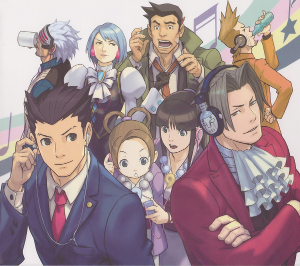 |
Album Title: Ace Attorney Sound Box |
| Record Label: Suleputer |
|
| Catalog No.: CPCA-10249/51 |
|
| Release Date: February 8, 2012 |
|
| Purchase: Buy at CDJapan |
Overview
Originally released for Japanese gamers in 2001 on the Game Boy Advance, Gyakuten Saiban (lit. “Turnabout Trial”) was a visual novel adventure game in the style of a courtroom drama. Players would collect evidence, cross-examine witnesses, and defend the innocent in various cases throughout its lengthy narrative. The endearing characters and well-written plot made the game an unexpected success, prompting two more games to follow. This trilogy was subsequently ported over to the Nintendo DS in 2005, with enhanced graphics, audio, and touchscreen controls. More notably, it was finally released with an English translation under the re-branded localized title of Phoenix Wright: Ace Attorney due to the fact that the DS was marketed to a wider demographic of adults outside of Japan, unlike the GBA. Now a sleeper hit overseas, Ace Attorney has become an international franchise with a very strong cult following that exists to this very day. Currently, the series has five main games, two spin-offs featuring prosecutor Miles Edgeworth (one of which sadly never received an official English release), a crossover with the even more popular adventure series Professor Layton, a planned game (at least for Japan) set in the Meiji era, a successful live-action movie directed by auteur filmmaker Takashi Miike, dozens of manga, and various soundtracks.
As Ace Attorney generally does not feature voice acting with its games, music is a key aspect that helps tell its story. For many, its memorable melodies have gone down in history right next to the likes of Mario and Zelda. Being a long-running franchise lasting nearly 15 years and with numerous ports across various systems, the series is no stranger to music releases. Apart from its main soundtracks, there have been multiple arranged albums ranging from performances with the Tokyo Philharmonic Orchestra to smaller jazz ensembles. The Phoenix Wright: Ace Attorney Sound BOX is a collection of the music from the first three games. This album actually is based directly on the WiiWare version of the trilogy, which in turn provided the basis for the music of the 3DS remake released in December 2014. Completely remastered from the GBA’s primitive sound system, this is the highest quality the original music has ever been in. But does that necessarily equate a worthwhile purchase?
Body
Gyakuten Saiban/Phoenix Wright: Ace Attorney
Despite being “enhanced” for the WiiWare release, Ace Attorney still shows its aging roots from dated GBA synth. For me personally, I’ve never been too much a fan of the system’s music. The sound to me always felt like it was stuck between NES and SNES, rarely finding a happy medium. The remastering is certainly better than the original, but be forewarned that it will not be anything revolutionary. Regardless, the composition itself still holds up even after all these years. Being the first ever music job for Capcom’s in-house composer Masakazu Sugimori, it’s an all-together excellent score throughout.
The game’s opening track “Prologue,” is a brief array of dark synths and piano keys, soon added to with drum kit cymbals and striking noises, reflecting upon the bludgeoning murder our hero Phoenix Wright is tasked with in his first case. It’s a short track, but is all the same, a strong opener as we get to the real meat of the score. What follows is the standard, but creative, musical template that all future entries in the series would continue on with. “Courtroom Lobby ~ Beginning Overture,” is the distant background piece that players will hear when they are preparing for trials outside of the courtroom. Despite its minimalistic elements, it conveys the right emotions of nervousness that both the player and the protagonist will both inevitably face. “Trial” is very effective with its bold acoustic, even at times jazzy, melody. Added scales of harmonic notes and bass make it an all-together memorable one as the details of the case are described.
“Cross Examination ~ Moderato 2001” is a simplistic 12-note motif that’s repeated with low-octave echoing synths for backing. This is one of those tracks that feel more effective in context, but less so on a standalone basis. The cross examination theme comes back with its “Allegro” version once new information is revealed from witnesses. Like its title suggests, it’s the same theme in a faster tempo, but the melody itself remains identical. I prefer it to the slower variation and while it ups the tension considerably, there’s not too much else to say. But still, not too bad. “Logic and Trick” on the other hand is far more ambient, used during sections where evidence and diagrams are explained by the prosecution. It’s a surprisingly engrossing track that has great varying sections which flow together beautifully.
“Phoenix Wright ~ Objection! 2001” has been unofficially called the series’ “main theme” by fans. While its melody is technically simple and uncomplicated, Sugimori’s exceptional utilization of reverb and synth instrumentation make it instantly memorable and one of the game’s strongest pieces. While most people love the series’ “Objection!” themes, I have to say that it’s the “Cornered” pieces which earn my praise. “Pursuit ~ Cornered” is just about perfect in every aspect. An epic melody at break-neck speed loaded with pure energy, I never tire of this one. A few tracks down we’re treated to a variation of the same theme which is even more effective with its added synth lines. I get chills every time I listen to it, remembering all those times where Phoenix Wright uncovers the true culprit and secures his client’s innocence. “Tell the Truth 2001” is used during scenes where witnesses confess or new revelations are revealed. Its combination of harpsichord and deep organ provide the main portion, while the end before the loop point goes completely silent save for some sparse percussion. Its synth is surprisingly of high sampling quality, despite its origins on GBA hardware. “Suspense” is one of Sugimori’s darker ambient compositions, bringing in the right amounts of tension and well, suspense, at key points throughout the game. Once the trial is won, “Victory! ~ The First Victory” is played in success, bringing back the harpsichord in a more upbeat aura. It evokes the pathos of both victory and loss, reflecting upon the emotional journey of our characters. While it first appears early on in the game, it is not until the end of the first disc where this track is featured. “Jingle ~ It Can’t End Here” is a short ditty that sounds when the player is given the opportunity to save in between chapter sections. While it’s probably the best one in the series, an eight second jingle is not my idea of a track I’d conventionally listen to. Though perhaps it’d be more effective as a phone ringtone or text notification?
Leaving the courtroom, Phoenix Wright meets a wide variety of colorful characters while investigating various crime scenes and locations. While the series’ investigation themes are nowhere near as good or memorable as the character pieces, they are generally well done in setting the tone appropriately. “Investigation ~ Opening 2001” is one of the better ones composed, though its melody leaves somewhat to be desired. “Investigation ~ Core 2001” on the other hand is far stronger in comparison. More on the ambient side, with cymbal strikes and added reverb, it’s a serious piece that’s absolutely effective when important plot points are revealed. Sugimori truly reveals his strengths in bringing out the right emotions for each scene with tracks like this. “Detention Center ~ Elegy of the Guards” is another good example of one, being pure melancholy and sadness.
Then of course there are the character themes which the series is more well-known for. “Maya Fey ~ Turnabout Sisters Theme 2001,” the upbeat and infectious theme for Phoenix’s plucky partner, fits her character perfectly. It’s a bit hard to describe, but anyone that plays the game will instantly feel that the piece just works. The piece has a great baroque-like feel that’s further enhanced with its orchestral performances on other releases, though is slightly less apparent here. The theme later returns with “Ballad of the Turnabout Sisters,” though in a sadder acoustic version that’s of pretty strong quality. “Marvin Grossberg ~ Aging, Regret, Repay” is sleazy and jazzy, being the theme to one of the corrupted people Phoenix meets during the murder investigation of a close friend. Like the character, it reminds me of someone trying to keep their cool, but largely failing. “Dick Gumshoe ~ Detective Gumshoe” is one of my favorites, having a theme that represents the ineptness, but sheer loyalty and dedication of everyone’s favorite bumbling detective. Its rising scales, but somewhat lack of musical progression, is completely true to the personality of Gumshoe. On closer examination, it coincidentally sounds quite similar to the introduction of the Beatles’ “Long and Winding Road,” but that hardly matters. This is a fantastic character piece that’s one of the best in the series. Speaking of which, we have “Neo-Tokyo Warrior Steel Samurai,” which I think even beats out Gumshoe’s excellent theme. The sampling of ethnic Japanese instruments along with rock/cinematic elements results in a track that can only be described as a masterpiece on Sugimori’s part. Altogether, his character themes for this first game are phenomenal. He captures each individual personality to a “T” and listening to each one of them is always a delight. The only piece that I cannot stand (really the only truly “bad” track on this disc) is the generic “Happy People,” used for extraneous characters. The melody itself is largely annoying, though I will give Sugimori credit for its sound quality. However coupled with the amount of times it plays during the game, and you have a track that tests even my patience. It makes me wonder why he composed such a bothersome track when he instead could have given an epic theme to badass prosecutor Manfred von Karma, who surprisingly doesn’t even have a character piece!
Another series musical staple is the recollection themes, of which there are numerous here. “Recollection ~ Heartbroken Maya” was a real surprise for me, as it’s the most wistful one here. Haunting synths and looping scales really tug on the heartstrings, especially for those that have played the game. “Recollection ~ The Bright and Dark Sides of the Studio” and “Recollection ~ Classroom Trial” are a notch below with their repetitiveness, but work slightly better in context. In contrast, we have “Recollection ~ The DL6 Incident,” which I feel is the best one. I’ve been using the word “effective” a lot in this review, but I really mean it here. Prosecutor Miles Edgeworth is later shown to have a dark and tragic past, this piece being used during his flashbacks. Once again, Sugimori is fantastic in crafting emotions with music and he succeeds in every way here. He closes off his score with a reminiscent ending theme that recalls all the characters and events experienced throughout the game, with some elements of “Trial” in there as well. Not the best ending theme in the series (that honor goes to the third game), but still impressive nonetheless.
The original release of Gyakuten Saiban for the GBA in 2001 only had four cases. However when it was re-released in 2005 for the Nintendo DS, Capcom added in a brand-new fifth case titled “Rise from the Ashes” which focused more on touchscreen and microphone gameplay mechanics. Being an extremely long scenario, it’s a wonder why it even exists in the first place. Regardless, it added in some new details to the series and even introduced some characters that would later become fan-favorites. Sugimori was not brought back to compose the new music, instead replaced by Akemi Kimura (real name Naoto Tanaka) who would later handle the score to Gyakuten Saiban 2.
“Rise from the Ashes ~ Prologue” is more ambience with sound effects than an actual piece, but the audio design is vastly superior to the GBA, and further enhanced here with the WiiWare remastering. “Recollection ~ SL9 Incident,” though not as strong as Sugimori’s DL6 track, is another depressing recollection theme that sets out what it’s meant to achieve. “Ema Skye ~ Turnabout Sisters Theme 2005” feels like an inverted variation of the original Maya Fey character piece, though is nowhere near as good. It fits the character well enough, I’ll take the original any day. “Blue Badger ~ I Want to Protect You!” is the childlike theme for the police station’s eponymous mascot. I never felt attached to this one, the reason being it’s only a series of very short loops with no musical development. Though frankly, I’m not sure what I was expecting with such a ridiculous name. Two new characters are introduced though, each with their own theme that fits their respective personality. The first is “Jake Marshall ~ Detective from the Wild West.” Every time this character appeared, I would always stop to listen to his piece just because I liked it so much. Sure, it sounds like a stereotypical cowboy theme, but that’s entirely the point. Kimura handles Western music surprisingly well, and it’s the standout track out of Rise from the Ashes. The other new character theme is “Damon Gant ~ Swimming Anyone?” The swirling organ melodies, and especially the rising scales towards the middle, are a delight to listen to. It matches the imposing nature of the police chief, giving off both feelings of stiff awkwardness and sheer power.
We end this very long case with a jazzy end theme that I feel is even better than Sugimori’s. From my perspective with life commitments, it took me weeks to beat this case due to its extended nature when I first played it. Yet when I won the trial and found the truth with Phoenix, I felt so satisfied. The laid-back nature of the track made me feel I was right there with him, savoring the victory I had won. For maximum impact, I later searched out the jazz performance of this piece and ended up loving it even more. A strong finisher to a strong soundtrack that held my interest from start to finish.
The soundtrack to the first Ace Attorney game represents the best in the series. Although there are some throw-away tracks, Sugimori’s efforts are exceptional, especially considering this was one of his earliest musical efforts. He nails nearly every character theme out of the park, and more importantly, allows the emotion of the story to be felt at maximum impact with his music. Chiptune lovers will no doubt enjoy this score, especially for the memorable melodies. Akemi Kimura is not as strong, but still delivers some great pieces with Jake Marshall’s theme and the ending. If there’s any reason to purchase this release, it’s definitely for the first disc.
Gyakuten Saiban 2/Phoenix Wright: Ace Attorney: Justice For All
The second game in the series is often regarded as the weakest entry, and that unfortunately also rings true with the soundtrack. As mentioned before, Naoto Tanaka working under the alias of Akemi Kimura was responsible for the new score, but there’s really no contest compared to Masakazu Sugimori. We still have our standard courtroom, investigation, and character themes, but it all just feels lackluster compared to the first game.
A prominent motif scattered throughout the game is the use of Bach’s “Toccata and Fugue in D minor BWV565.” It makes two appearances on the soundtrack here, the first being the prologue track, while the second is simply a ringtone variation of the theme for the character of rich snob Richard Wellington. The former uses a surprisingly crisp and high quality organ sample, while the latter is nothing more than a cellphone jingle. There is very little to say on its inclusion, as it is one of the most famous pieces by Bach out there. It’s again one of those tracks that makes sense given the context of the game, but loses its meaning when included on the standalone score.
The soundtrack gets a proper start with its courtroom themes, unfortunately the majority being hit or miss. First off, we have “Courtroom Lounge ~ Another Overture.” Somewhat militaristic and jazz-like, I enjoyed it about as much as Sugimori’s original piece from the first game. As established by the “Toccata and Fugue” theme, organ is used more this time around. The new “Trial” theme is a stoic and regal sounding progression of organ notes mixed in with some swirling synth lines. “Cross Examination ~ Moderato 2002” is actually a bit stronger this time around, having a delicate harp melody that skillfully carries witness’ initial testimonies, while hinting at more information to come. The later “Allegro” variation becomes darker with its increased tempo, more emphasis being placed on the lower octave synth harmony. “Trick and Magic” is the track once again used when evidence and diagrams are explained during exposition sequences, but I have to say it falls flat compared to the far more subtle and effective “Logic and Trick” theme by Sugimori. “Phoenix Wright ~ Objection! 2002” is a disappointment, feeling incomplete and more of a second verse to the original (and better) “Objection! 2001” theme. The looping synths are memorable, but lack the sheer power that the older track had. The distant organ lines in the background are a decent touch though. “Press the Witness ~ Cornered,” on the other hand, succeeds well with its intense composition wrought with energy and passion. Its later variation adds in more powerful background synth, while “Hotline of Fate” additionally uses the same melody towards the end of the score, albeit with more emphasis on the techno-inspired electronic reverb. The new “Tell the Truth” theme combines organ bars and synth vamps into a piece that’s effective, though slightly repetitive. “Victory! ~ Another Victory” benefits from the upgraded remastering, allowing its bittersweet organ and higher octave melody to shine through with better clarity than before.
A brand new mechanic introduced with Justice for All is the inclusion of “Psyche Locks,” a visual method that Phoenix uses to pry testimony out of characters who refuse to talk willingly. The theme for these sequences is one of my favorite tracks from the game, being a combination of Japanese instrumentation and trippy techno synths. “Kurian Village” has similar utilization of traditional instruments, but is more on the ambient side with its musical structuring. Both are quite strong and interesting efforts on Kimura’s part. Wright is also given his own ringtone jingle, which in turn is a variation of the Steel Samurai theme. Stripped away of its Japanese instruments and epic composition, what remains is the bare-bones melody arranged for synth that emulates a cellphone’s soundchip. Though it runs for a mere 24 seconds, it’s creatively done and I will admit to using it for my own phone on multiple occasions. “Jingle ~ Can’t Sleep on a Night Like This” is expectedly forgettable and unnecessary. “Gorgeous” is another short track running at only 18 seconds, this one used for a brief opening cutscene. While its jazzy and casino-like melody is entertaining (almost like something out of Outrun), it’s all too short to leave any real impact. The following track is a location piece titled “Berry Big Circus.” As probably my least favorite case in the entire series, listening to this stereotypical accordion-based circus theme brings nothing but bad memories.
Next up are Kimura’s new investigation themes. “Investigation ~ Opening 2002” suffers from a painfully simple melody, one that almost sounds like it came from a child’s music exercise book. Added to that is the distracting synth that sounds generic and uninteresting. “Investigation ~ Middle Stage 2002” is far stronger, having a memorable melody that’s all-around great with excellent percussion and jazzy instrumentation. Some elements even remind me of the classic Terminator 2: Judgment Day theme, though that’s likely coincidental. “Investigation ~ Core 2002” is used during the more serious portions of the games, having a deeply ominous melody and haunting piano lines. The tone is surprisingly dark for an Ace Attorney game, but it’s memorable with some creative mixing. The recollection themes are less stellar. “Recollection ~ Fire Carved Scars” and “Recollection ~ True Pain” both feel cheesy, over the top, and are generally ineffective in trying to hit the emotions they’re meant to evoke. It works slightly better in-game, but not standalone. The only one that’s particularly good is “Recollection ~ Steel Samurai’s Ballad.” The sad and depressing variation of the original theme in a blues-like mood is exceptionally well done.
There are some character themes here, though the majority of them are remixes of Sugimori’s compositions. “Maya Fey ~ Turnabout Sisters Theme 2002” is practically unchanged from the 2001 version, and actually uses synth that’s a notch below it. The theme for Pearl Fey, Maya’s young cousin, utilizes parts of the pieces into something that sounds more childlike. While it fits the character, it sounds sort of annoying and less pleasing to the ears. “Eccentric” and “More Happy People” are more generic pieces used for other extraneous characters. The former utilizes a downbeat, even sleazy, kind of tune while the latter is a silly synth ditty that lacks any real progression. More interestingly though is the theme for assassin Shelly de Killer. Although it’s a pretty basic melody of only a few notes, the end result of Kimura’s mixing is a classy ambient jazz track that perfectly matches the image of a deadly gentleman killer. The final new theme dubbed “Great Revival” is a piece for red-suited prosecutor Miles Edgeworth, who surprisingly never had one in the first game. A brassy march that’s inspired and befitting of the character’s personality, it’s one that I can gladly add to the canon of great character tracks from the series. It is also later featured as the same theme for whip-cracking prosecutor Franziska von Karma, though is nearly identical. The only difference is that introduction portion, which sounds strikingly akin to Back to the Future (these similarities to other works keep adding up, huh?), is absent.
Kimura finishes things with an inspired ending theme that thankfully evokes the right feelings, while reflecting well upon the events that transpired during the game’s story. The ominous ambient melody with melancholic piano notes hints at a journey of adversity and struggle, but with a light of hope at the end. Given the intense nature of the final case, what I view to be the game’s strongest portion, it’s good that fitting closure was provided musically. The epilogue track “Prosecutor’s Murmur ~ Expecting the Next Meeting,” though brief, is impressive technically with its sound mixing, especially considering that it was originally on GBA hardware.
Justice for All is an overall mixed bag with its music. While some melodies are quite good and memorable, a large chunk of the soundtrack is simply not very good. There is precious little variety with the character themes, something that’s a series staple, in addition to courtroom and investigation themes that fall far short of the original game. Akemi Kimura is not a bad composer, having given some strong contributions to Madworld and Bayonetta, but listening to his lackluster work here only makes me wish I was hearing Masakazu Sugimori instead. It’s not the worst score I’ve ever heard, but nothing to write home about either. All and all, a disappointing effort.
Gyakuten Saiban 3/Phoenix Wright: Ace Attorney: Trials and Tribulations
Following the success of the previous two games, Trials and Tribulations was hotly anticipated as the finale to the trilogy, tying up all loose ends. Unlike the series’ other entries which utilized less-experienced composers, industry veteran Noriyuki Iwadare known for his acclaimed work from Grandia and Lunar, was tasked with crafting the game’s soundtrack. The result is a score that is one of the strongest in the franchise next to the original.
“Prologue” is a strong opener that introduces Iwadare’s experimental, but varied compositional style. Setting the scene for the first case in which a young Phoenix Wright is framed for murder, haunting ambience builds up into a Baroque melody of scales. The ambience returns and fades off with a combination of piano and percussion. Though short, its cinematic nature is an impressive feat. “Courtroom Lounge ~ Neverending Overture” once again returns to the militaristic distant nature of the series’ lobby themes. This time around, we are treated to a high quality organ sample, mixed in with electronic blips that provide the main backing. Next up is Iwadare’s “Trial” theme, one of my favorite pieces of his. Hearing it, the listener can feel a sense of impending closure and high stakes, as if going to court with Phoenix Wright for the last time. The organ melody and synth reverb in response has a magnificent scope that is on a larger scale than the other previous trial themes. Keep in mind that at the time, this was meant to be the final game to the entire franchise. As a result, Iwadare succeeded with creating an imposing atmosphere of finality.
We move on to the standard courtroom pieces, all of them a major improvement over Justice for All’s mixed bag. “Cross Examination ~ Moderato 2004” consists of a harp-like scale that subtly progresses with deeper background synth, only to hold back at the last minute, representing the witness keeping in crucial information. The “Allegro 2004” variation is an expected speed-up of the tempo, and the mellow arrangement of notes before the looping point is a highlight. Ah, but what of the new “Objection!” theme, you may ask? I can happily report that Iwadare delivers the goods. Unlike the previous themes which were fast-paced and intense, this one is far more laid-back and reserved, just like Phoenix smirking to himself while exposing a contradiction. Then we arrive to, “Break the Witness ~ Cornered.” While not as victorious and electrifying as Sugimori’s composition, Iwadare’s feels dire and emotional. The melody even feels like a confession being ripped out of a witness, especially with its later variation, having even more synth elements mixed together. “Tell the Truth 2004” is easily the most impressive of the trilogy’s confession themes, having complex composition, rising and falling scales, heaving percussion, and a few bell swings for added effect. Towards the end of the disc, Iwadare provides a higher quality variation of Sugimori’s original “Cornered” theme, upping the emotions for the final exposed contradiction that Phoenix reveals. “Victory! ~ Eternal Victory,” as expected from the series, appropriately sets the mood of a trial won and losses felt with its melody that is upbeat and bittersweet at the same time. “Jingle ~ Can’t Go Back to a Normal Life” is as forgettable as ever.
Iwadare provides character themes which have become series staples, and are some of the strongest work of his entire career. He brings to the table several varied compositions, all of them impressive in some way. “Godot ~ The Fragrance of Dark Coffee,” the theme to the mysterious antagonist of the game, is one of the series’ best pieces. From its delicious smooth jazz saxophone melody to each other individual musical element which flow together perfectly, every single aspect of the coffee-guzzling, visor-wearing prosecutor’s theme is top-notch. It’s no wonder why this track is beloved by Ace Attorney fans, while having received numerous arrangements. Even the ringtone version remixed into chiptune synth makes for pleasant listening, also having a great fade-out effect towards the end. Jazz is once again employed with “Furio Tigre ~ Swinging Tiger,” mixing in sleazy saxophone and other brassy instruments into an impressive soundscape. Moving on from jazz, Iwadare experiments with other genres. “Mask☆DeMasque ~ Pleeeeease Listen!” caught me off-guard with its tango-like style. It’s flashy and theatrical, but befitting of the eponymous insecure “master thief” character. “Luke Atmey ~ Look at Me,” DeMasque’s ace detective “rival,” is equally strong with its contrasting subdued design, having classy violin and guitar strings. All of this is further exemplified from the excellent WiiWare remastering, though the GBA synth is still apparent.
Despite having appeared already in the series, Iwadare finally gave a theme to supporting character Larry Butz in the style of a comedic techno riff, almost sounding a bit like the Ghostbusters song at times. Given the character’s personality for misfortune and failure, it’s quite a humorous piece given the context. In sharp contrast to this is “Victor Kudo ~ An Anguished War Anthem,” a no-nonsense militaristic brooding theme for the old man of the same name. “Dahlia Hawthorne ~ Distant Traces of Beauty” is more inspired by traditional Japanese music, having an ambient arrangement of notes that represent the seemingly innocent nature of the character. Despite its minimalistic elements, it proves to be a great theme. Iwadare utilizes more Asiatic elements with “Elise Deauxnim ~ Simple Melody,” which, despite the title, proves to be quite complex with its multiple levels of Eastern instrumentation.
Similar sound is also used with the area theme “Hazakura Temple,” though favored more towards the ambient enigmatic side. Other area themes include “Trés Bien,” the annoyingly infectious electronic theme to a French restaurant location, and “Lordly Tailor,” a Baroque-like piano piece that’s actually quite enjoyable. Iwadare also introduces a few event themes used for the introductions to certain cases. “The Stolen Turnabout” begins with an assuming collection of urban notes, only to transition into excerpts of Mask☆DeMasque’s theme, though notably featuring piano and siren sounds. “Recipe for Turnabout” is an interesting mix of techno, piano bars, ambience, and a hint at the game’s “Trial” theme towards the end. “Turnabout Beginnings” has a first half consisting of dark electronic foreshadowing, later shifting into a tragic variation of the “Turnabout Sisters” theme.
The two “Investigation” themes are sufficiently done, being suitable backdrop as players collect clues and interview witnesses. There’s not much that make them stand out, though they do their in-game job well enough. “Detention Center ~ Elegy of the Prisoner” fares stronger, having melancholic piano lines and a better sense of despair than the series’ previous detention center themes. Iwadare also provides three surprisingly strong recollection themes as well. “Recollection ~ What the Others Have Seen” uses low octave, almost organ-like, synth that is greatly made even better with the added reverb of the remastering. “Recollection ~ A Shadow on Dusky Bridge” brings in dissonant piano notes mixed in with downbeat harmony that results in a wistful aura of sorrow. The last one of these, “Recollection ~ The Bitter Taste of Truth” is used when the revelations of Godot’s past are revealed. Acoustic and full of sadness, its tone is appropriate given the roller-coaster of pathos experienced by both the characters and the player by this point.
This entire 25 hour plus long game is finally concluded with an ending theme that I can only describe as pure emotional beauty. Beginning with a distant swirl of notes and an overarching mist of electronica, it immediately transitions into a variation of Iwadare’s “Trial” theme. Percussion and extra synth elements are slowly added onto this motif, as we see the game’s wide cast of characters moving on with their lives following the dramatic events. At around 1:30, a plaintive violin solo sample adds in a second melody. This immediately changes into a duet performance of the “Turnabout Sisters” theme, resulting in excellent lyricism from both sides. The original “Trial” variation returns at the three minute mark, stripped back down to its original elements. The ending theme fades out as players are left to contemplate on the wonderful universe and lifelike characters they have just left. There’s a reason why I dedicated an entire paragraph specifically to this ending theme, and that’s because it’s on an entirely different level than all the tracks in the entire series. Iwadare infuses so much passion and nostalgia into this one single ending theme, no other piece from Ace Attorney has emotionally affected me as much as this one. Yes, it’s still using instrumentation that is synthesized, but if it doesn’t move one to tears after completing the game, it will certainly at least stir strong feelings from the player.
Iwadare’s soundtrack to Trials and Tribulations is so agonizingly close in terms of quality to Sugimori’s work, that I often have trouble deciding between the two of which one is better. Sugimori offers endearing character and courtroom themes, while Iwadare succeeds in delivering stellar pathos with his more complex composition. Beyond that, he additionally impressed me with the sheer amount of varying styles used for each character and location. From the unforgettable smooth jazz piece for prosecutor Godot to the emotion-driven spectacular ending theme, there is so much to like here. Whether or not it’s better than Sugimori’s music is up for debate, but all I can say is that this is one excellent score. Noriyuki Iwadare definitely earned his wings with this soundtrack, and it is because of his strong efforts that he keeps being called to return to the series by Capcom. With his excellent start here, I can clearly see why.
Summary
This is a difficult album to score. On one hand, we have excellent and memorable melodies that are some of the best to ever come out of the industry thanks to Masakazu Sugimori and Noriyuki Iwadare’s consistently stellar efforts. But on the other hand, the synth can sound quite simplistic at times due to its origins on GBA hardware and most of Justice for All’s score is a mixed bag. From the perspective of an Ace Attorney fan, I find it to be a comprehensive collection of music from the trilogy in one reasonably affordable package, while also sounding as good as it can in non-arranged form. To someone who is not a fan, I can give it a somewhat strong recommendation to chiptune lovers given the melodies, but I think this is something that the fans will appreciate more. Overall, I’m giving it four stars, all of these factors considered. More causal listeners may find the orchestra and jazz albums to be more to their liking, and given that they’re planned for a reprinted release in one single compilation this year, it’s a better time than ever to get into the series’ music.
Do you agree with the review and score? Let us know in the comments below!
4
Posted on January 31, 2015 by Oliver Jia. Last modified on January 19, 2016.

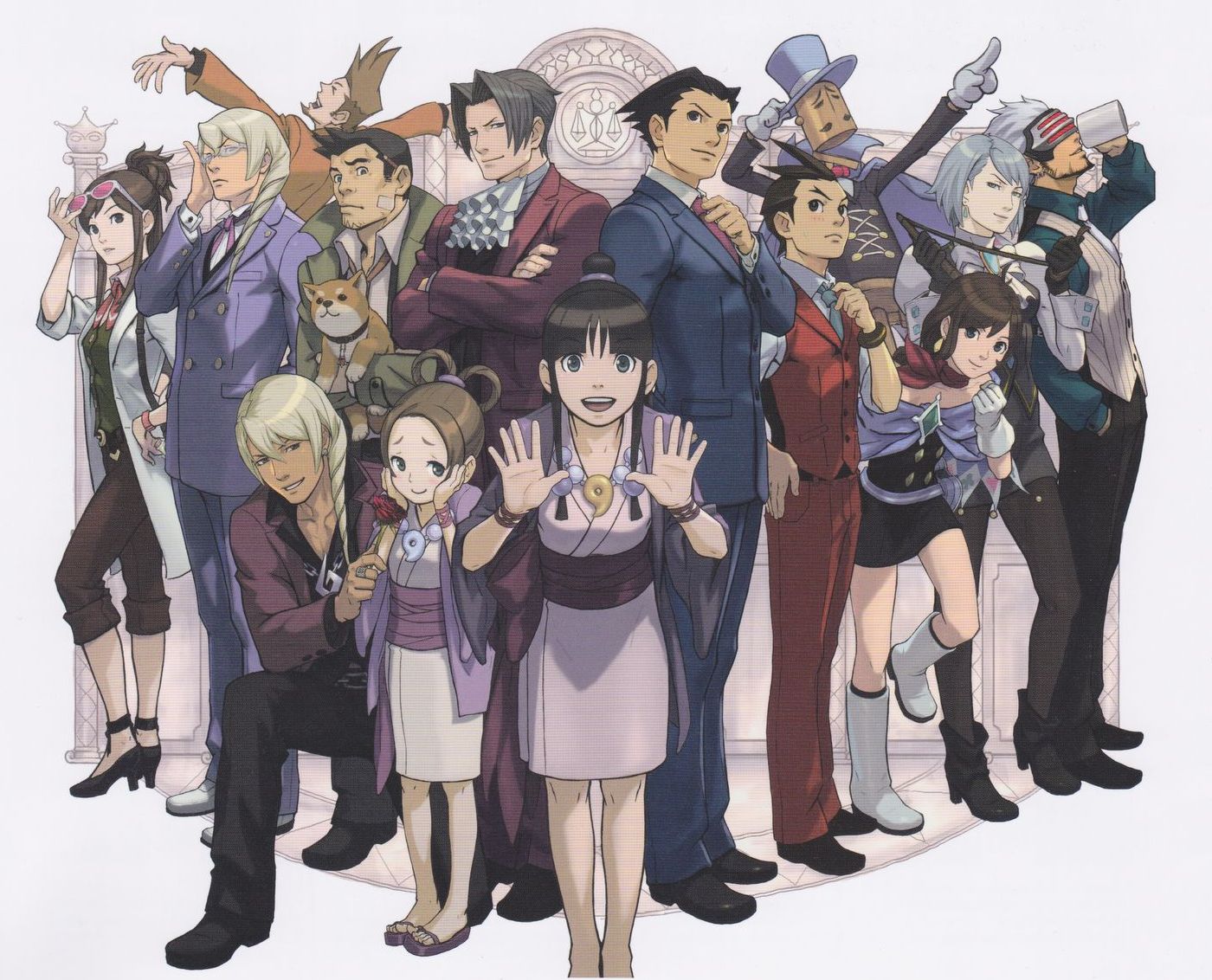
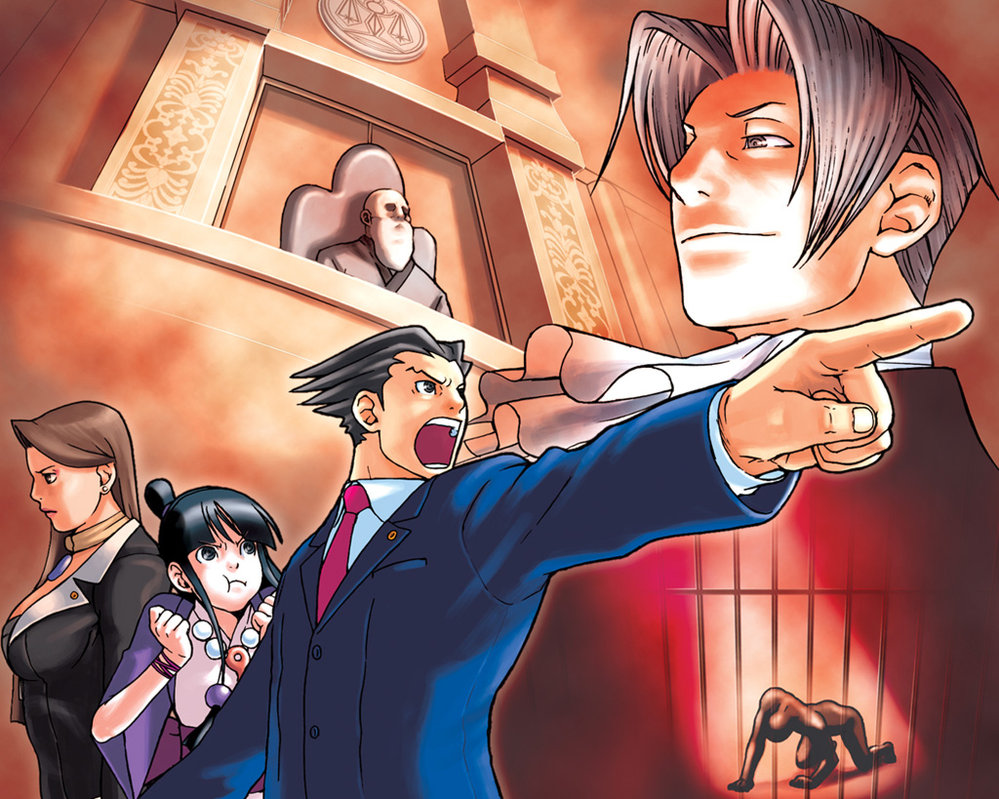
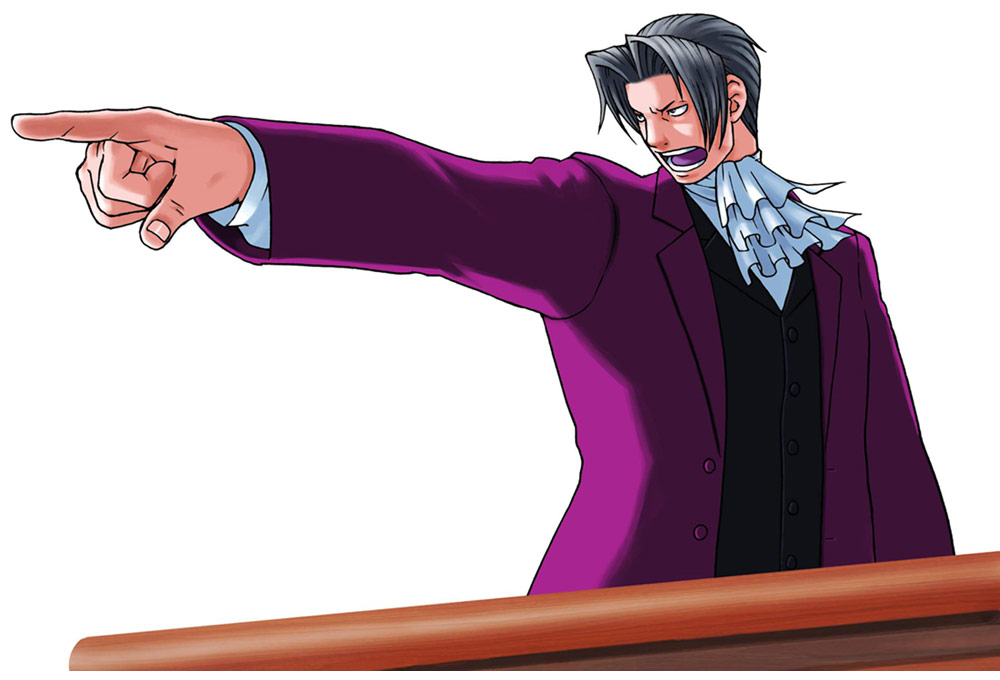
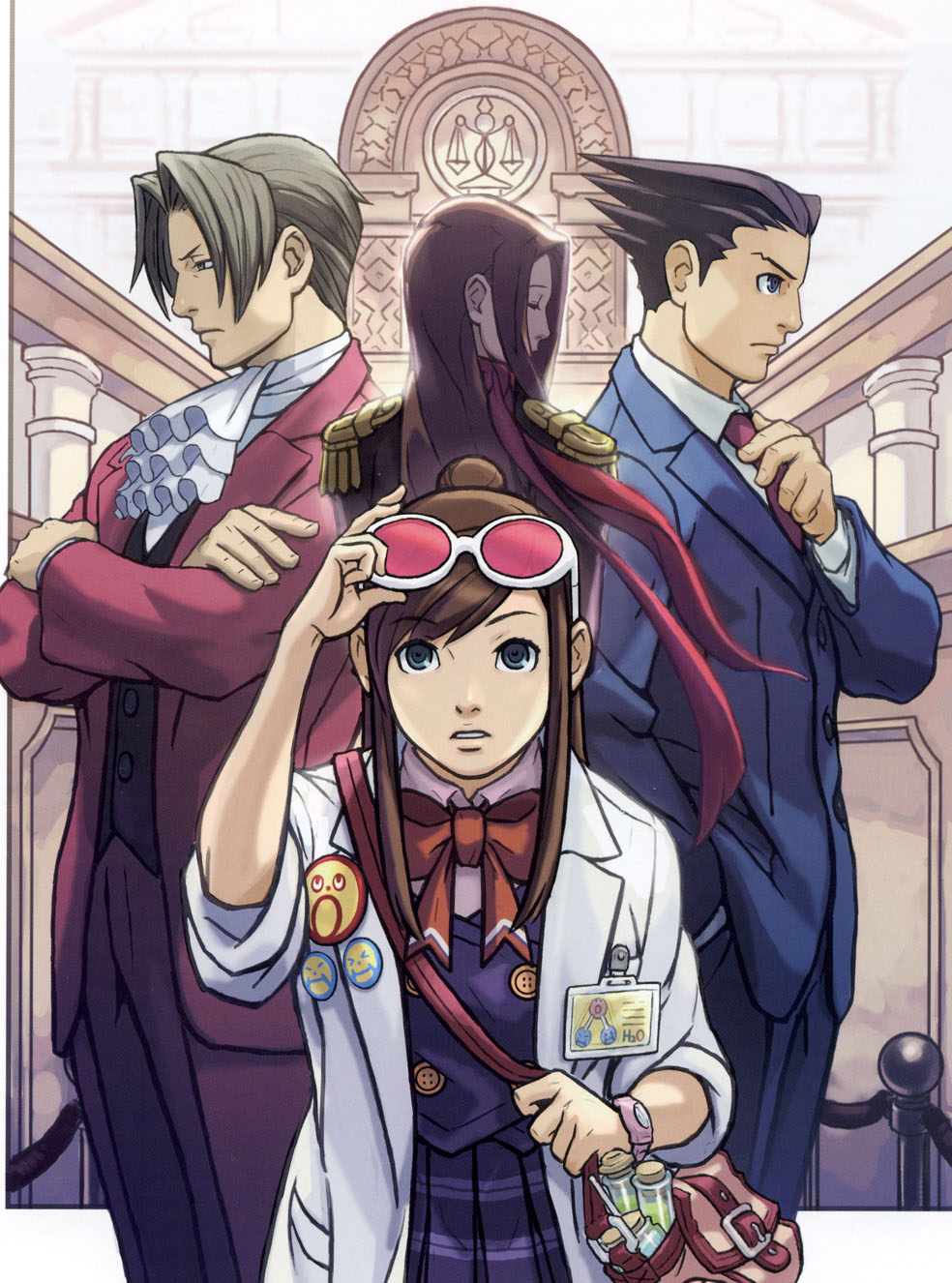
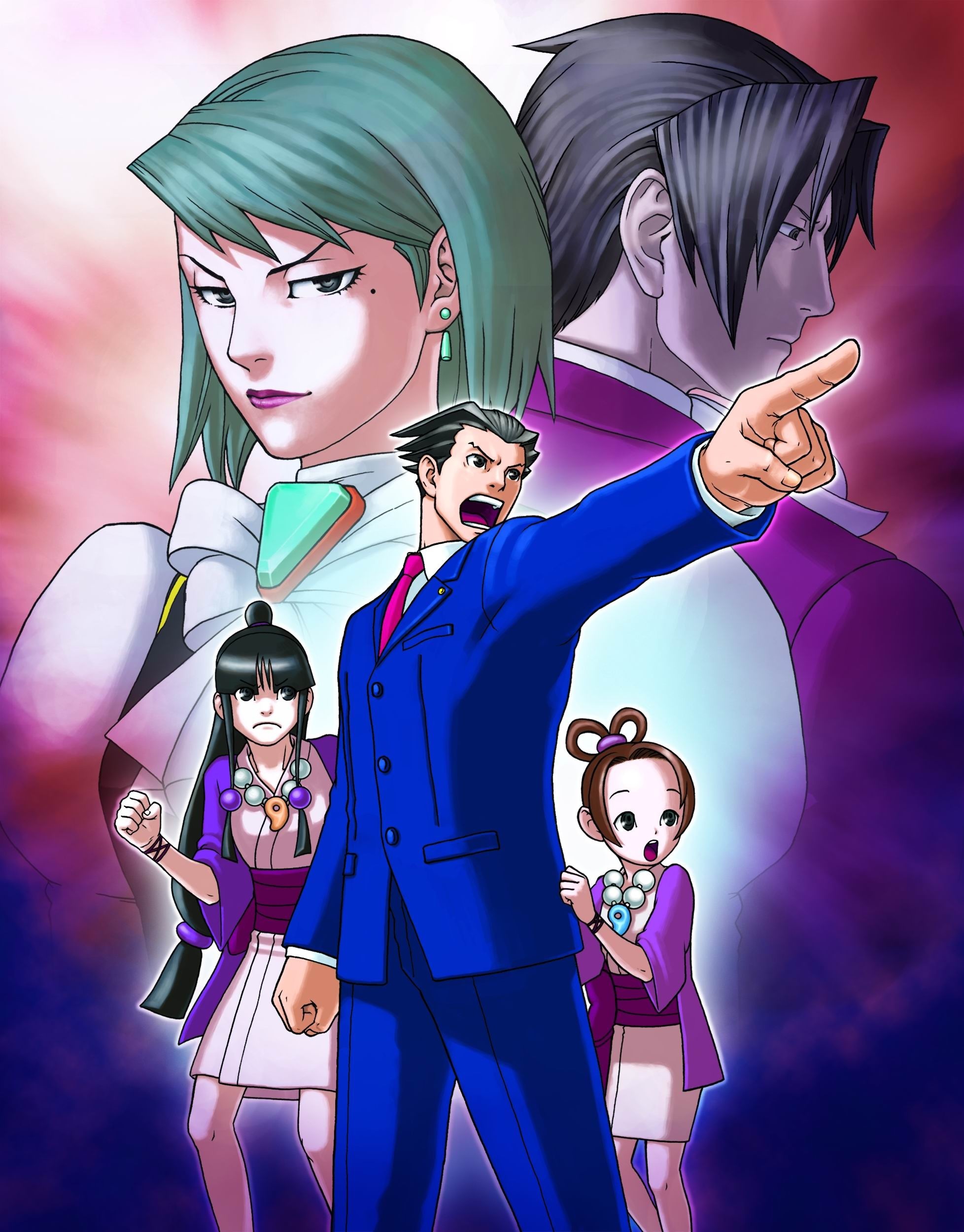
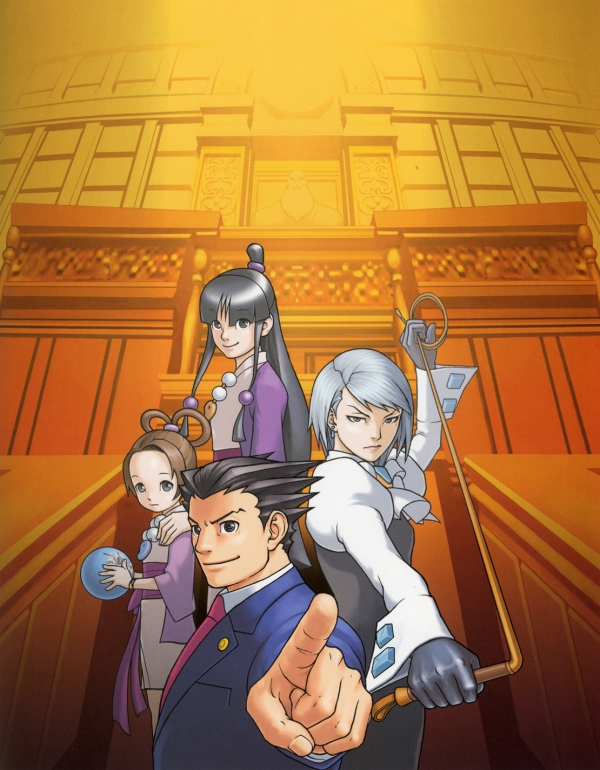
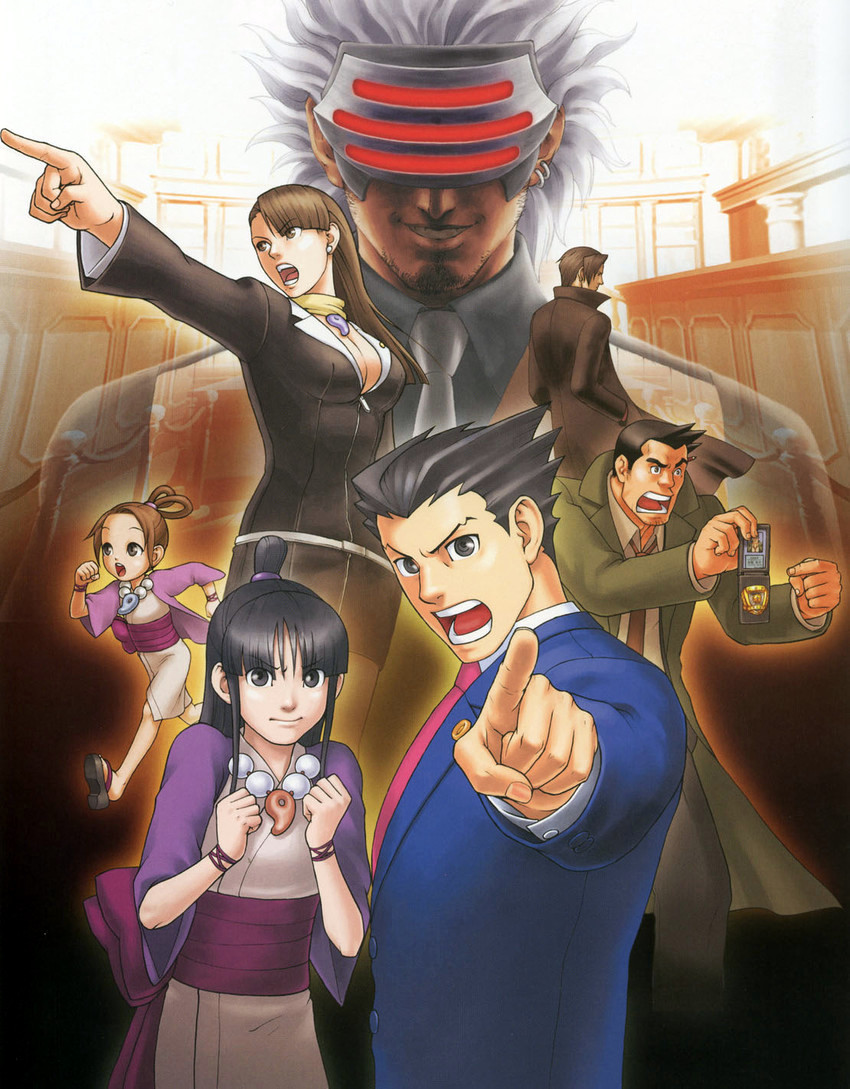
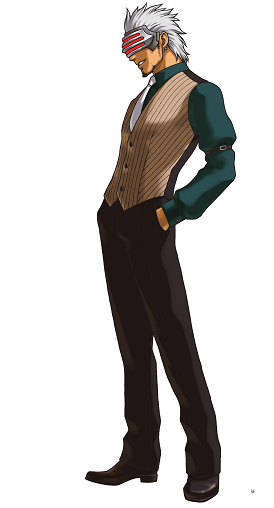
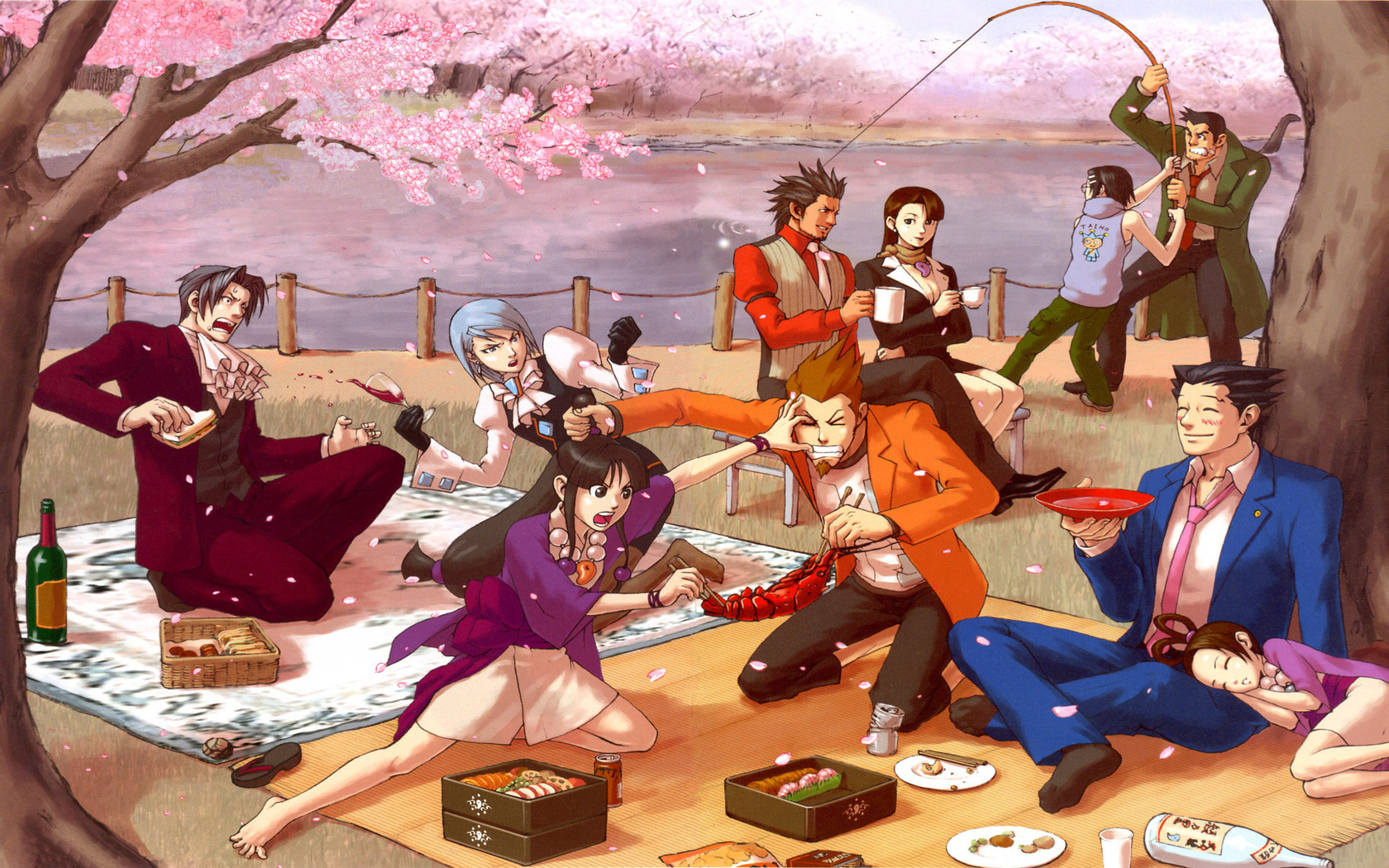
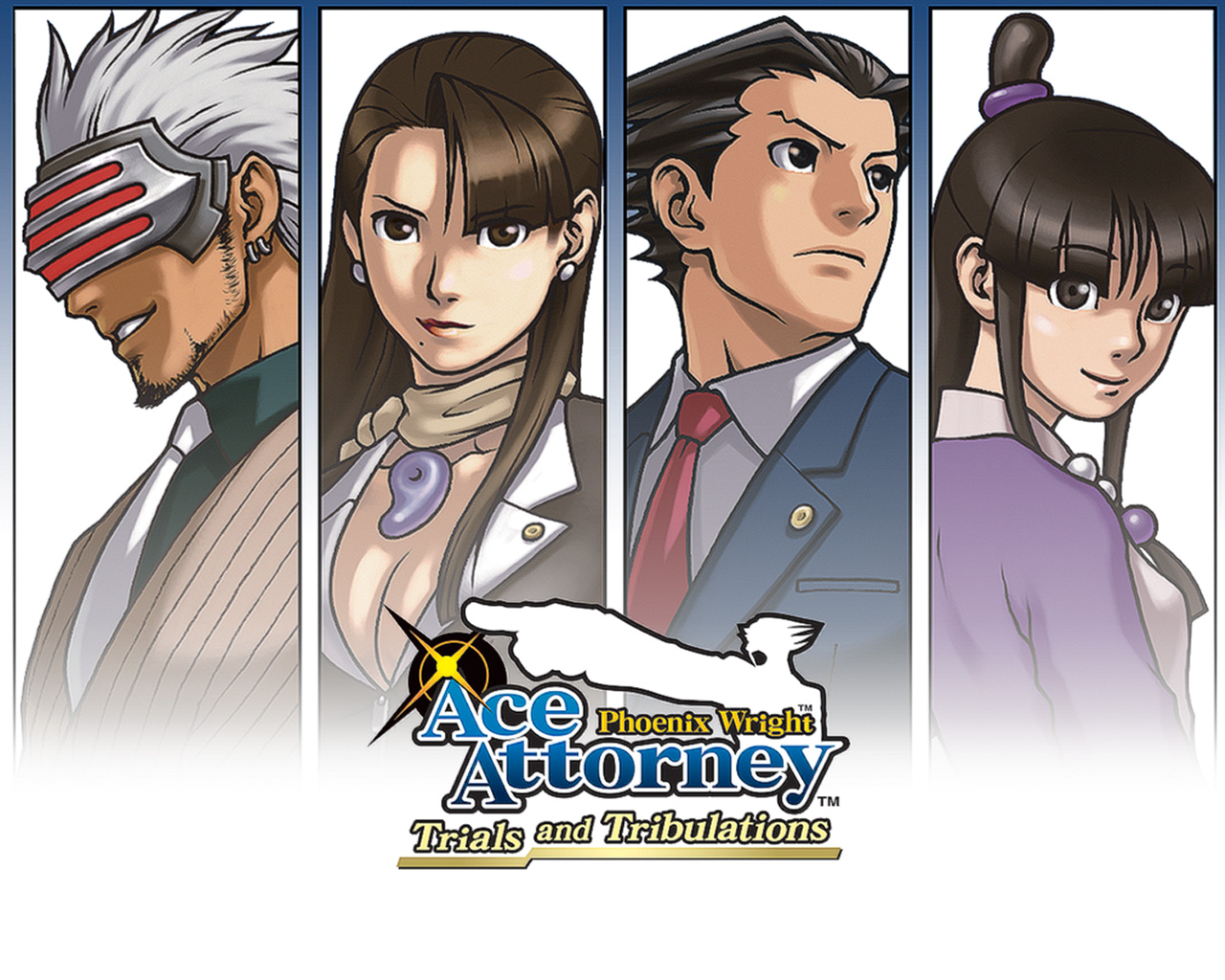
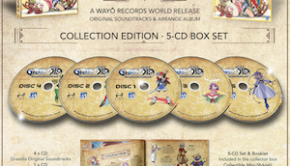
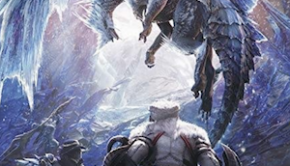

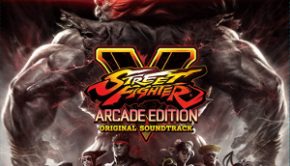










Fantastic read, Oliver! I think you have convinced me to try this series out and soak up those hooky synth riffs!
Thank you for your kind words, Marc! I really do recommend the series. Music is definitely a big part of it. Hope you enjoy it if you ever seek it out!